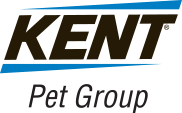As specified in the Company’s Guidelines on Business Conduct, Kent Pet Group and its parent company, Kent Corporation, is committed to conducting business with the highest standards of morality, fairness, and integrity and to adhere with the laws of the jurisdictions in which our business takes place. In these Guidelines, the Company expressly states that it does not accept or support the use of illegal, forced, or child labor within its operations anywhere in the world and shall not knowingly purchase supplies from suppliers who engage in slavery or human trafficking. KPG requires all of its employees to comply the Guidelines.
As a practical matter, Kent Pet Group is an Iowa, USA business that manufactures its products in the United States, where its manufacturing plants are subject to U.S. and state laws and regulations regarding, among other things, forced labor and human trafficking. KPG’s supplier base is also predominantly U.S.-based. The main ingredients in our products are U.S.-grown commodities, which is our largest purchase by far. These commodities are produced by U.S. farmers who are also subject to U.S. and individual state laws regarding forced labor and human trafficking.
KPG has a dedicated purchasing department that ensures the Company works with reputable suppliers. Our purchasing team is responsible for verifying the quality of the supplies we buy as well as the integrity of the suppliers which provide them. KPG holds such suppliers to the highest industry standards, which enables us to produce quality, consistent products in turn for our customers. At a minimum, all KPG suppliers are expressly required to comply generally with all laws applicable to the production of the products they supply to KPG.
With specific regard to the California Transparency in Supply Chains Act of 2010, KPG states it has sought certification from some key, non-farmer suppliers that the materials provided to KPG comply with the laws regarding slavery and human trafficking of the country or countries in which the supplier is doing business. Otherwise, in light of the realities of where KPG sources the vast majority of its supplies, KPG does not currently (1) engage in verification of product supply chains to evaluate and address risks of human trafficking and slavery; (2) conduct audits of suppliers to evaluate supplier compliance with laws for trafficking and slavery in supply chains; (3) require all direct suppliers to certify that materials incorporated into their products comply with the laws regarding slavery and human trafficking of the country or countries in which they are doing business; (4) maintain internal accountability standards and procedures for employees or contractors failing to meeting standards regarding slavery and human trafficking; or (5) provide employees and management who have direct responsibility for supply chain management training on human trafficking and slavery. KPG will continue to review its supply chain management practices and take those steps we deem appropriate to make sure we can continue to produce superior products for our valued customers.
